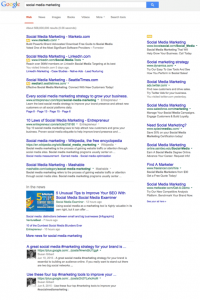Is an influx of data clouding our creativity? At the 2015 Web Summit conference, contributor Matt Clough shares ideas on the topic from expert speakers, who also explore how marketers must adapt in the digital age.
 Digital marketing is currently the staging ground for a battle between a seemingly immovable object and an unstoppable force. The rise of big data in recent times has brought about a revolution in how marketers must work.
Digital marketing is currently the staging ground for a battle between a seemingly immovable object and an unstoppable force. The rise of big data in recent times has brought about a revolution in how marketers must work.
While data’s empirical evidence has allowed for more accurate measurements of return on investment than ever before, its cold, unflinching point of view has, in the opinions of some, begun to impinge upon another cornerstone of marketing: creativity.
On the first day of the 2015 Web Summit conference — taking place in Dublin, Ireland, this week — this dichotomy was readily apparent.
Embrace Your Inner Childlike Creativity
AKQA Chief Technology Officer Ben Jones struck the first blow for creativity, offering a heartfelt, impassioned rallying cry for marketers to embrace their inner sense of childlike wonder and harness the creative potential that the “tenacious dreaming” state of mind engenders.
Jones cited George Land’s 1968 study into the creativity of children and how it diminished as they grew up as a piece of compelling evidence to support his case. In the study, Land applied a test he’d devised for the selection of NASA engineers to children of various ages, and arrived at the conclusion that “non-creative behavior is learned.”
However, despite the accepted necessity of creativity across all aspects of marketing, digital or otherwise, the gradual encroachment of granular statistics has created what can be a stifling marketing ecosystem, driven by a dogmatic reliance on data above all else.
Data Vs. Creativity
The theme of creativity sacrificed at the altar of data and vice versa surfaced in the panel talk that followed immediately afterward, as well, featuring Jones, Chip Paucek of 2U, Cillian Kieran of CKSK and Ross Kingsland of Fast Company.
There was a consensus that while data analysis is a vital skill for a digital marketer to possess, hiring those who can showcase their creative abilities in the recruitment phase should be the top priority.
Not only is creativity still a critical facet of marketing, but the four unanimously agreed that the old corporate structures that siloed creative thinking and restricted it to a relative few were completely obsolete.
Companies must now ensure that creativity is an integral part of an overall culture in order to negate the role of data in dulling creative faculties.
In a later talk, Soren Hagh of Heineken echoed this sentiment by speaking in detail about the way in which his company has tackled time-honored ways of working to adapt to the digital age: “We are tearing down old structures at a rate that few people would have thought possible.”
Don’t Get Bogged Down By Data
There is little question that data is a major theme of Web Summit’s 2015 edition, and deservedly so. It’s enabled marketers to delve deeper and gain a better understanding of their work than ever before, and it has provided justification for projects and methods where before it simply would have been impossible.
However, as Kieran noted, “technology is a paintbrush for creativity,” and the same is true of data.
By encouraging a creative culture and hiring marketers who see “every day [at work] as a holiday,” in the words of Paucek, companies can ensure that they avoid becoming so bogged down in data that they eventually have nothing creative of note to analyze.
Some opinions expressed in this article may be those of a guest author and not necessarily Marketing Land. Staff authors are listed here.
(Some images used under license from Shutterstock.com.)
Marketing Land – Internet Marketing News, Strategies & Tips
(69)
Report Post







